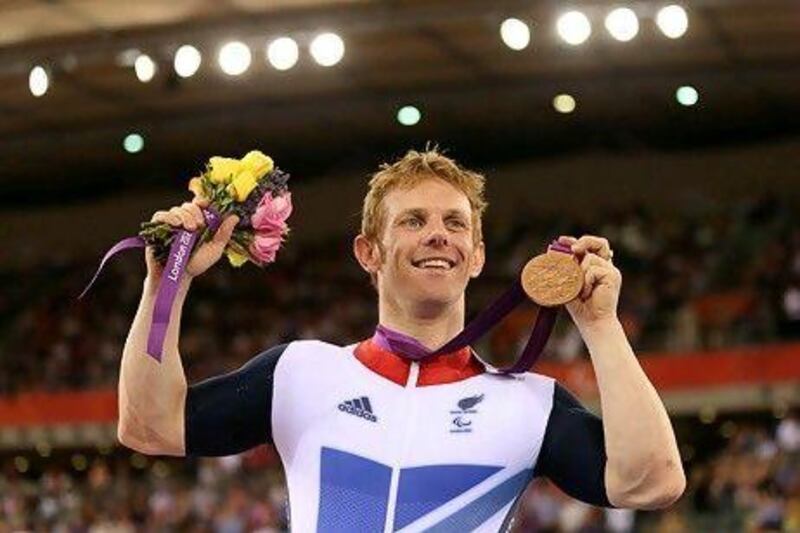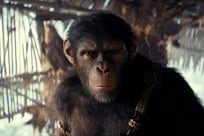Picture the scene: a sportsman hurls foul-mouthed abuse at an official. Face contorted by rage, veins and sinew bulging from his neck, he hurls a water bottle, makes obscene hand gestures and adopts the classic Scrappy Doo position ("Lemme at 'im, Uncle Scoob!") as his teammates hold him back.
Opposing competitors try to act as peacemakers, offering a friendly arm around the shoulder. Petulantly, he barges them away.
Who do you have in mind? Wayne Rooney, perhaps? Joey Barton? Mario Balotelli? It must a footballer, of course. They are the bad ones. They are the ones who represent all that is wrong with sport, with society.
Actually, no. It is Jody Cundy, a Team GB cyclist at the Paralympics.
Yeah, you heard me: the Paralympics: home of the brave, the heartwarming, the inspirational. The "Super Humans", as they are billed by host UK broadcaster Channel 4.
Cundy was born with a deformed foot which was amputated when he was three years old.
To the apparent shock and consternation of many, this procedure did not also involve the removal of his testosterone gland or the insertion of a halo.
A short time later, the double amputee sprinter Oscar Pistorius was doing his own impersonation of a Premier League star, albeit more Arsene Wenger than Rooney. After being beaten in the 200m final, Pistorius sourly congratulated his opponent, Alan Oliveira, on his "ridiculous" and "unfair" victory.
Ever the canny PR man, who trades on a squeaky clean image as a noble pioneer for disabled sports, Pistorius later apologised for the timing of his complaint about the length of Oliveira's carbon fibre blades. But not the content.
Those blades that offer no advantage to Pistorius when he wants to compete in the regular Olympic apparently do offer an advantage when worn by his rivals in the Paralympics.
Once again, the watching world was encouraged to gasp in shock as an elite athlete sought to use every trick in the book, including those in the section titled Morally Dubious, to gain advantage over a rival.
Well, sorry, but I am not shocked. In fact, I welcome it.
Disabled athletes are not "Super Humans". They are just humans.
To watch them through rose-tinted spectacles is not as bad as ignoring them altogether but nor is it the equality they strive for.
When Paralympians ask us to consider them in exactly the same way we do able-bodied athletes, I take it literally. In other words, I assume they are selfish, obstinate, obsessive, vainglorious and spoilt.
These are qualities you must possess to be an elite athlete. They are the darker sides to qualities we admire: tenacity, single-mindedness, desire, focus.
That does not mean they are bad people. Cundy's sheepish apology for his tantrum was clearly heartfelt, and Pistorius deserves huge respect for his ambassadorial and pioneering work for disabled sport. It simply means they are people, with strengths and frailties.
If it helps to get this message across, a couple of tantrums and cheating rows will do disabled sport the power of good.
Plus, let's be honest and declare an element of self-interest here: a bit of niggle is part of the entertainment in sport.
Cody's false start was a personal disaster for him - thankfully he won a consolation bronze in a different event - but his Scrappy Doo antic were just as entertaining as when the Joey Barton Circus rolls into town.
Likewise for the South African, whose post-200m petulance added extra spice to last night's 100m final, and took some of the "pious" out of "Pistorius".





